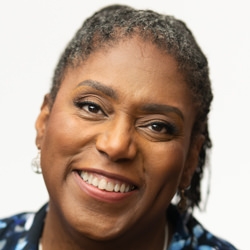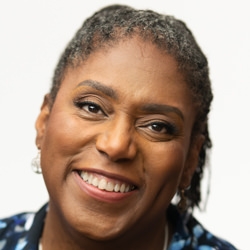

Search Results: change
-
Read how an American Buddhist NVC teacher with Jewish roots reflects on how any dehumanization in the Israel-Hamas conflict can be used to justify all kinds of violence that can escalate for generations. With acknowledgment of the complexities, his desire is for us to bring in respect, dignity and peace -- for both Israelis and Palestinians. He emphasizes compassionate advocacy of all humanity amid the ongoing crisis.
-
Empathy alone can be unreliable in guiding compassionate action. As seen in historical events, military training, personal anecdotes, and scientific experiments, empathy alone may not prevent people from harming others. A sense of duty or obedience, often instilled through fear of punishment and shame, might inhibit empathic action. The antidote may be to fostering empathy without resorting to control, shame, or punishment.
-
Guide equitable group dynamics by tracking attention, needs, and impact.
-
Focus on impact over intention to navigate racial complexity in facilitation.
-
Exploring how NVC can support healing and connection in places deeply affected by violence.
-
John Kinyon shares how self-connection and mourning help balance your needs with others’.
-
In this brief audio snippet, CNVC Certified Trainer and founder of the CNVC Parenting Project, Inbal Kashtan, offers a profound insight that can change how we see and relate to our children.
-
Miki demonstrates how to work with judgmental thinking, offering a two-step process to shift from right/wrong thinking about our disagreements to a more open-hearted state of being.
-
LoraKim Joyner addresses the sense of overwhelm that can accompany holding the needs of the many. Practicing self-empathy is a pathway to living in the tension of mutually holding my needs and the needs of others.
-
LoraKim explores what gets in the way of seeing the inherent worth and dignity of others when there is conflict in congregations. The strategies LoraKim offers can be applied to any spiritual community.
-
Developing interpersonal relationship skills in congregations is integral to working with the conflicts that arise. These skills can be applied to any spiritual community.
-
Miki responds to a participant’s question concerning fear of consequences when speaking with a manager at work. In this excerpt, she delves into the topic of choosing to inhabit nonviolence in the workplace, affirming that fear and nonviolence are incompatible, and that nonviolence is a powerful alternative to our habitual Fight, Flight, Freeze responses.
-
Miki responds to a 2014 NVC in Business Conference participant’s question concerning the focus on needs over other aspects of NVC in business communication.
-
Hear a session on spreading NVC, sharing visions, and seeking support for goals.
-
In groups, relationships and society we may not want to dominate or take away from others’ access to power, to choice, to participation in decisions, nor to shaping the vision and direction of the dynamic. And yet how do we do it anyway without knowing it? Discover how privilege operates on a societal level and becomes so invisible in groups. Learn why the conversation is usually excruciating for members of both privileged and under privileged.
-
What is it that we are taught we can’t have, and what is it that we are encouraged to pursue instead? This guide could help you see through what's hidden behind the curtain of our societal conditioning.
-
How do we address historical and present challenges regarding the invisibility of privilege and power? What can we do, especially if we are people with privilege, to transform these conditions? However challenging these kinds of situations are, and whatever our position, we can move towards more inclusivity by learning and doing significant inner and outer work.
-
We're in difficult times - possibly at the brink of extinction. What can we do in response? Some nonlinear steps: A.) Notice what isn't working; B.) Mourn so that we can move "towards" from an expanded space inside; C.) Analyze to bring a fuller understanding of what's happening and what's needed; D.) Reframe our inner and outer narratives; E.) Discern what we can contribute; F.) Care; and G.) Bring in support for more resilience and creativity.
-
If you’re interested in improving your relationships, advancing in your career, or enhancing your capacity for change in life in general, communication is a powerful lever. Presence, listening, bringing curiosity and care, focusing on what matters, and pausing with silence, are all key. Read on for five foundational and advanced core practices you can start using today to improve your communication.
-
This pandemic is an immense opportunity, and a dire catastrophe in the making. It’s a crisis within many planetary crises — during which, our habits as individuals, and as a collective, are challenged because they don’t sustain us. Now we are pushed to respond freshly and join forces in ways that seemed impossible before.
Quick Links

Stay in Touch!
We value your privacy, won't share your email address and you can easily unsubscribe any time.
















